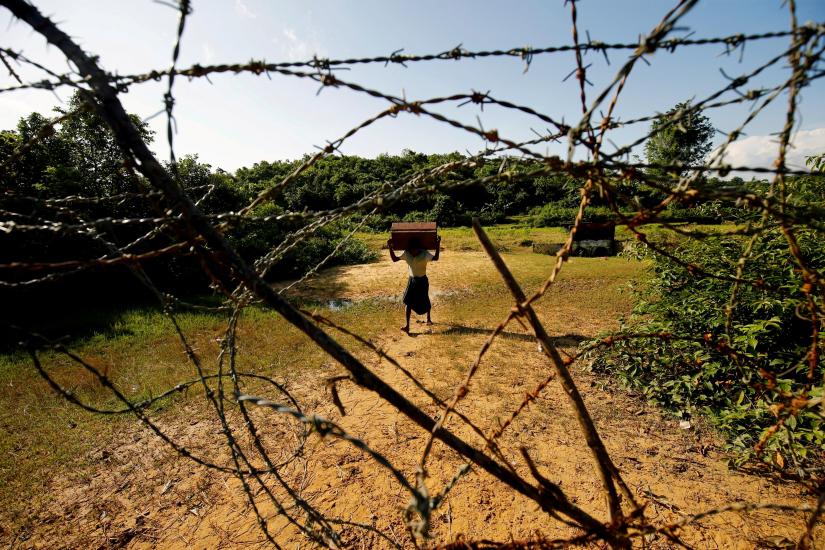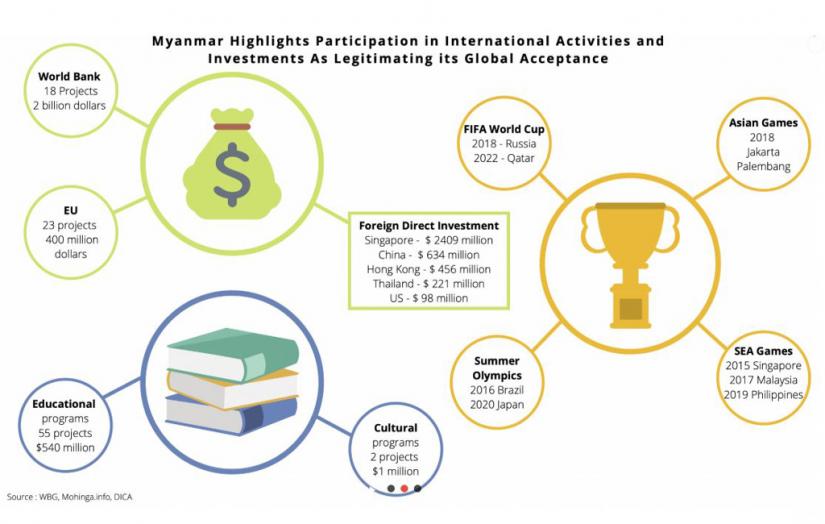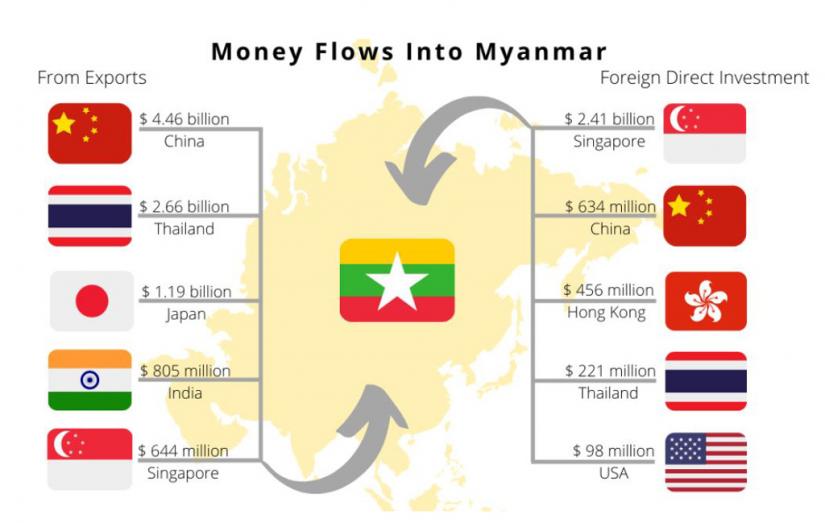 Around 30 human rights, academic and professional organizations from ten countries have jointly launched a campaign worldwide to boycott Myanmar over allegations of genocide and crimes against humanity towards ethnic minorities.
Around 30 human rights, academic and professional organizations from ten countries have jointly launched a campaign worldwide to boycott Myanmar over allegations of genocide and crimes against humanity towards ethnic minorities.
According to its website, the international movement “Boycott Myanmar Campaign” was launched on Monday, to oblige Myanmar’s coalition government of Aung San Suu Kyi and the military for bearing economic, cultural, diplomatic and political pressure.
The launch of the campaign coincided with Myanmar’s de facto head of state Suu Kyi's arrival in the Hague as she tries to defend the country against allegations of genocide in the opening sessions of The Gambia vs Myanmar at the ICJ from December 10 to 12.
According to a press release issued on the campaign's website, the launch of the campaign also overlapped with the International Day of Commemoration and Dignity of the Victims of the Crime of Genocide and of the Prevention of this Crime, a day established by the UN General Assembly on December 9 in 2015.
The United Nations General Assembly also adopted the 1948 Convention on the Prevention and Punishment of the Crime of Genocide (the “Genocide Convention”) on the same day.
Among the initiators of the global campaign are the Free Rohingya Coalition, Forsea.co, Restless Beings, Destination Justice, Rohingya Human Rights Network of Canada, Rohingya Human Rights Initiative of India, and Asia Centre, the press release said.
 The global campaigners also urged corporations, foreign investors, professional and cultural organizations to sever their institutional ties with Myanmar.
The global campaigners also urged corporations, foreign investors, professional and cultural organizations to sever their institutional ties with Myanmar.
Nay San Lwin, the Germany-based co-founder of the Free Rohingya Coalition, said: “The United Nations International Fact-finding Mission on Myanmar have unequivocally stated that Myanmar, my ancestral country of birth and citizenship, has adopted policies of intentional destruction of my own Rohingya ethnic community.”
"As Rohingya rights activists, we campaigned hard for the release of Daw Suu throughout her 15-years of captivity by the Burmese military. Since her release, she has only used her freedom to collaborate with the murderous military.”
Nay San Lwin added: “On behalf of the Rohingya community of survivors, I, therefore, urge you to use your liberty and power, as citizens and consumers, both individually and as representatives/members of activist networks, religious communities, educational institutions, or professional or parliamentary associations, to cut any and all institutional and formal ties with Myanmar.”
 What is expected to happen at the ICJ hearing?
What is expected to happen at the ICJ hearing?
The ICJ on November 18 had decided to hold three days of hearings from December 10 to 12.
According to the schedule posted on the ICJ website, the first round of oral observations will be delivered by the Gambia from 10 am to 1 pm local time on Tuesday, while Myanmar will submit its oral arguments at the same time on Wednesday.
In the second round of oral observations, on Thursday, Gambia will place arguments from 10 am to 11:30 am and Myanmar from 4:30 pm to 6 pm.
The filing of this case, which provided a ray of hope among the Rohingyas, has been possible as both Gambia and Myanmar are signatories of the Genocide Convention.
This case has apparently put Myanmar under real pressure, mainly because any decisions by the ICJ are binding on member states.
The decision of Myanmar State Counsellor — and the de facto president — Aung San Suu Kyi to lead the lawyers on behalf of her country and reactions among people reflects a certain degree of fear on the part of Naypyidaw.
Gambia’s justice minister Tambadou will lead his country during the hearings.
Bangladesh will have no role to play during the hearings, but a delegation headed by Foreign Secretary Shahidul Haque will be present in the courtroom to observe the proceedings.
What is the Rohingya crisis?
The atrocities against the Rohingyas — often described as one of the world’s worst persecuted communities — by Myanmar military, local Buddhists and different ethnic groups in Rakhine state is nothing new. Myanmar authorities and their local allies have been doing this for decades with full impunity.
Between the 1990s and October 2016, at least 250,000-350,000 Rohingyas lived in Bangladesh illegally. About 70,000 new Rohingyas joined them after another military crackdown in October and November in 2016.
After that, the latest exodus of Rohingyas since August 25, 2017, had seen the arrival of about 740,000 Rohingyas to Bangladesh due to unprecedented atrocities orchestrated by the Myanmar security forces and their allies.
Even after facing denouncement from other countries and compelling findings of an independent UN fact-finding mission and others, Myanmar government did not bring the perpetrators of the genocide, crimes against humanity and ethnic cleansing to justice — as it enjoys unwavering support of its staunchest ally China, a veto yielding member the United Nations Security Council.
Naypyidaw also enjoys the support of powers like Russia and India to some significant extent.
However, things appeared to have moved in favour of the Rohingya refugees who cited accountability and justice as part of their prerequisite for repatriation to Rakhine, after the Gambia, a small West African country, filed a case with the International Court of Justice (ICJ) on November 11 against Myanmar.
Abubacarr Marie Tambadou, the attorney general and justice minister of Gambia, had filed the case with the ICJ, The Hague-based principal judicial organ of the UN, alleging violations of the Convention on the Prevention and Punishment of the Crime of Genocide by the Myanmar government.
Filing the case on behalf of the Organisation of Islamic Cooperation (OIC), Gambia also asked the ICJ to impose provisional measures, as a matter of extreme urgency, to protect the Rohingyas from further harm by ordering Myanmar to immediately stop all genocidal conducts.
Gambia is the chair of the OIC ad-hoc ministerial committee on accountability for human rights violations against the Rohingyas, which was established at the 45th OIC council of foreign ministers meeting in Dhaka in May 2018.


